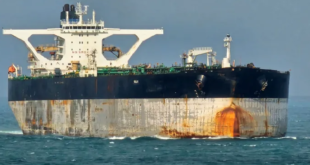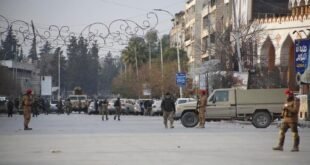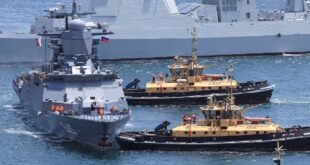17-04-2024
SOUTH-WEST PACIFIC OCEAN, AUSTRALIA: The people of the Solomon Islands are set to vote for their next government on April 17, in an election that could have repercussions for the rest of the Asia Pacific region due to the country’s close relationship with China.
 The Pacific state’s 760,000 citizens are spread across its 900 islands and 28,230 square kilometres (10,900 square miles) of territory, making this one of the most logistically challenging elections in the world. It will take several weeks to collect all the ballots and then wait for the country’s 50 MPs to form a government before they choose the next prime minister.
The Pacific state’s 760,000 citizens are spread across its 900 islands and 28,230 square kilometres (10,900 square miles) of territory, making this one of the most logistically challenging elections in the world. It will take several weeks to collect all the ballots and then wait for the country’s 50 MPs to form a government before they choose the next prime minister.
Neighbors like Australia, New Zealand and Papua New Guinea have sent police to help with security during the election period as elections in the past have been followed by periods of unrest.
The election is taking place a year later than usual so the Solomon Islands government could focus its resources on hosting the 2023 Pacific Games, a move which raised more than a few eyebrows among observers.
What’s at stake in the election?
The election has been described as “perhaps the most important to [the] Solomon Islands since independence” by Tarcisius Kabutaulaka, an associate professor and former director of the Center for Pacific Islands Studies at the University of Hawaii, because of the country’s ongoing economic problems and its role in the greater rivalry between China and the United States.
For foreign observers, the major issue is the Solomon Islands’s ongoing relationship with China and whether Prime Minister Manasseh Sogavare will be re-elected.
Sogavare is best known overseas for switching diplomatic recognition in 2019 from Taiwan to China.
The controversial decision stirred unrest and in November 2021, protesters targeted Honiara’s Chinatown and tried to storm Sogavare’s residence. Peace was restored with the help of a contingent of Australian police following a request from the government.
 Then in 2022, Sogavare signed a secretive security pact with Beijing causing alarm in Australia, New Zealand and the US. The countries feared China could one day build a naval base there, dramatically increasing Beijing’s military reach. The island chain lies about 2,000km (1,200 miles) east of the Australian city of Brisbane and just more than 6,000km (3,728 miles) southeast of the Chinese city of Shanghai.
Then in 2022, Sogavare signed a secretive security pact with Beijing causing alarm in Australia, New Zealand and the US. The countries feared China could one day build a naval base there, dramatically increasing Beijing’s military reach. The island chain lies about 2,000km (1,200 miles) east of the Australian city of Brisbane and just more than 6,000km (3,728 miles) southeast of the Chinese city of Shanghai.
One of Sogavare’s rivals for the top job, Peter Kenilorea Jr, an outspoken MP and the son of the country’s first prime minister, has pledged to switch ties back to Taiwan.
For Solomon Islanders, however, “bread and butter” issues trump all else, according to Graeme Smith, a fellow at the Australian National University’s Department of Pacific Affairs. “I don’t think that the China thing is really that central of an issue. Normally, what people are excited about in their daily lives are health, education and transport,” he told Al Jazeera.
Although it is rich in natural resources, the Solomon Islands ranks just 155 out of 199 countries in the United Nations’s Human Development Index. Critics have also accused the government of economic mismanagement and corruption, further exacerbating these problems.
Kabutaulaka told media that one of the key group of issues for Solomon Islanders is the government’s ability to provide social services like health, education, and rural development or conversely, whether they have failed to do so. Another group of concerns is whether voters think their chosen MP will be able to access and share state resources. (Int’l Monitoring Desk)
 Pressmediaofindia
Pressmediaofindia




